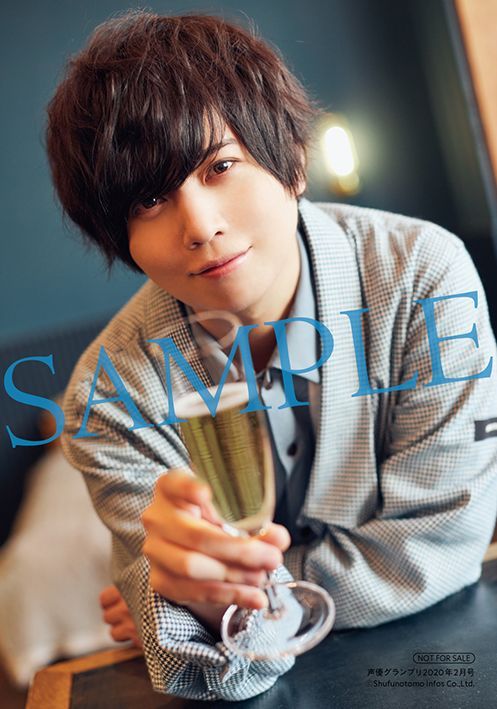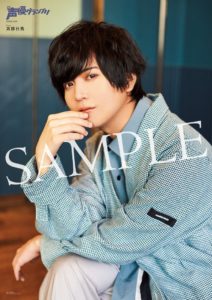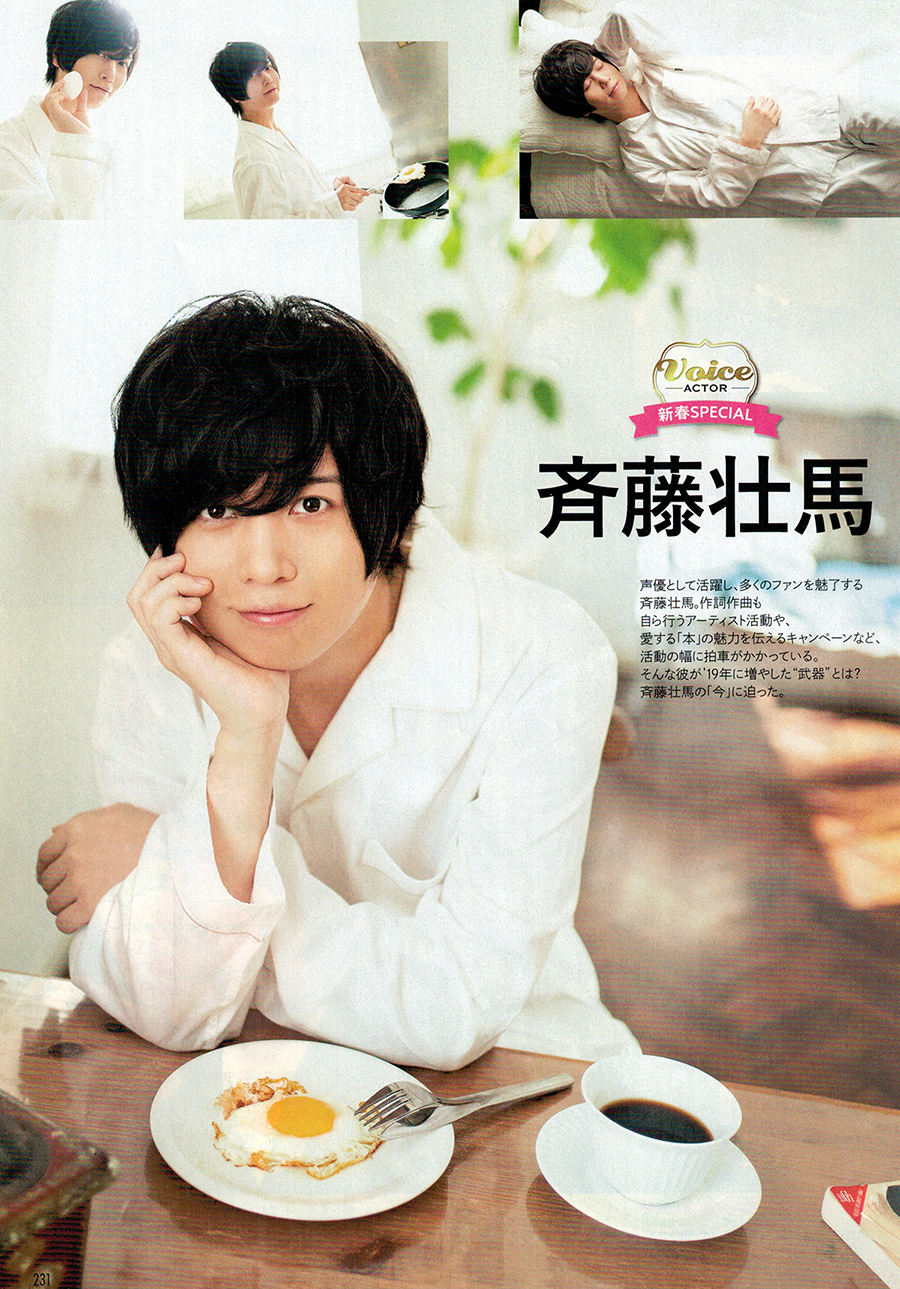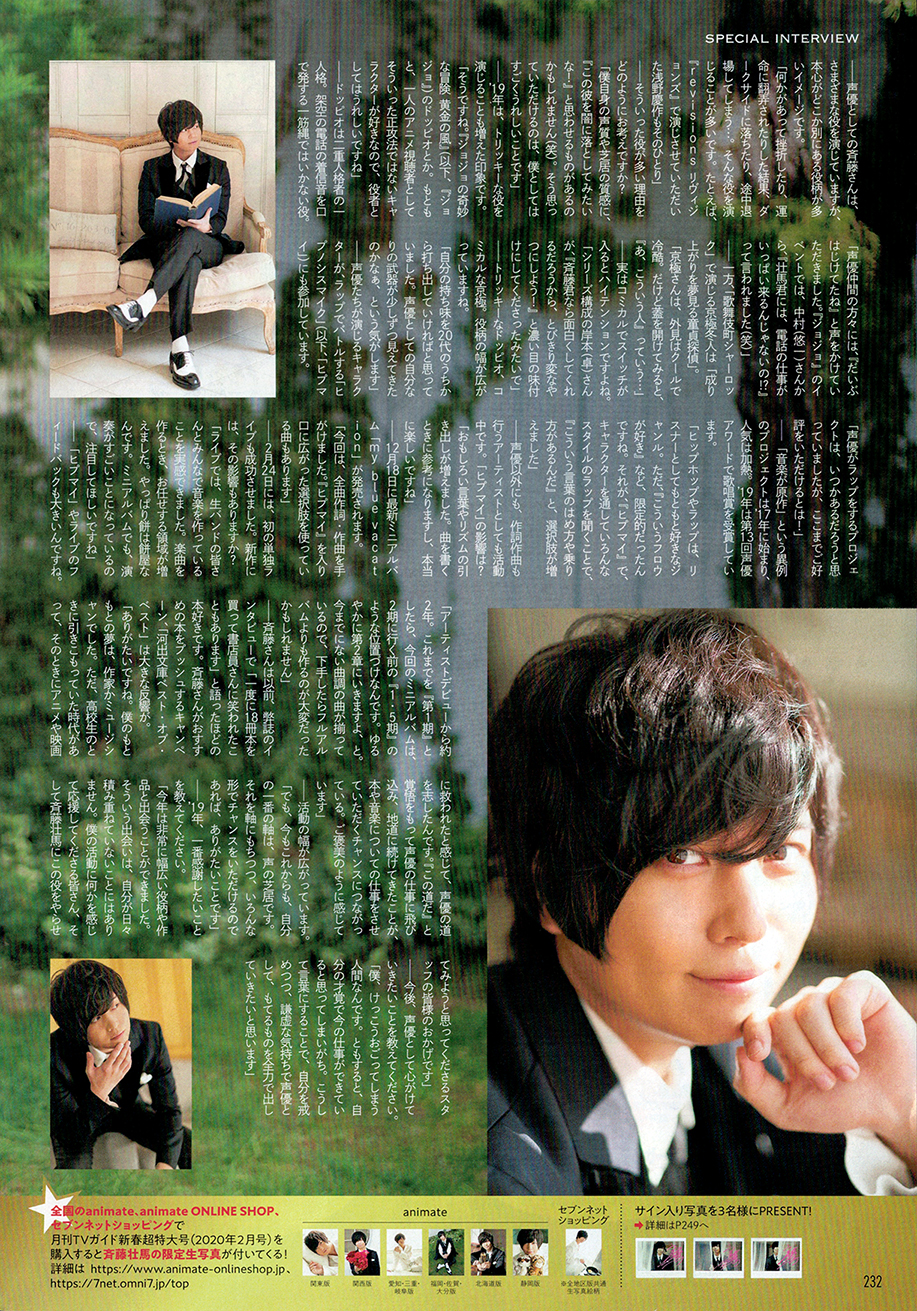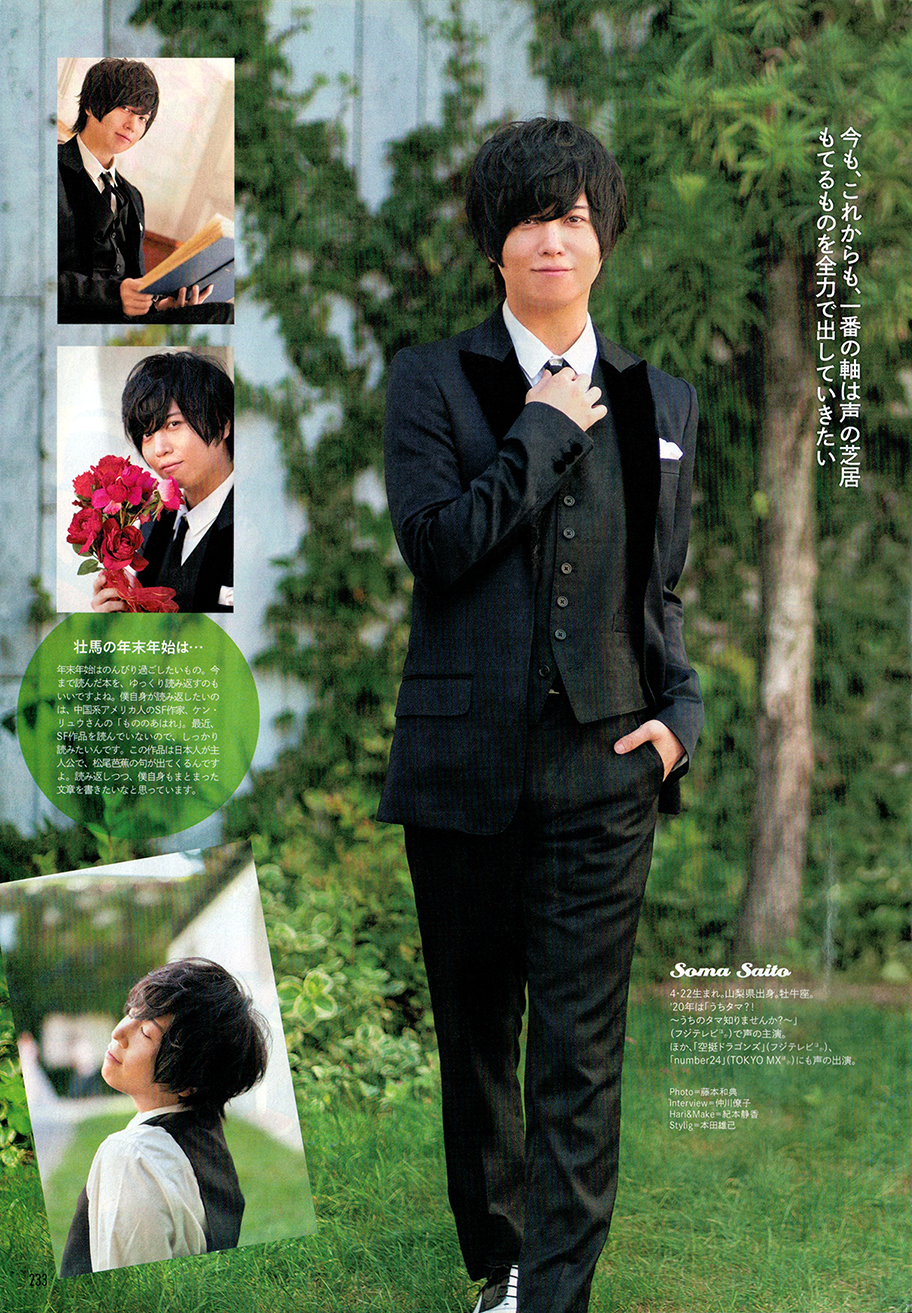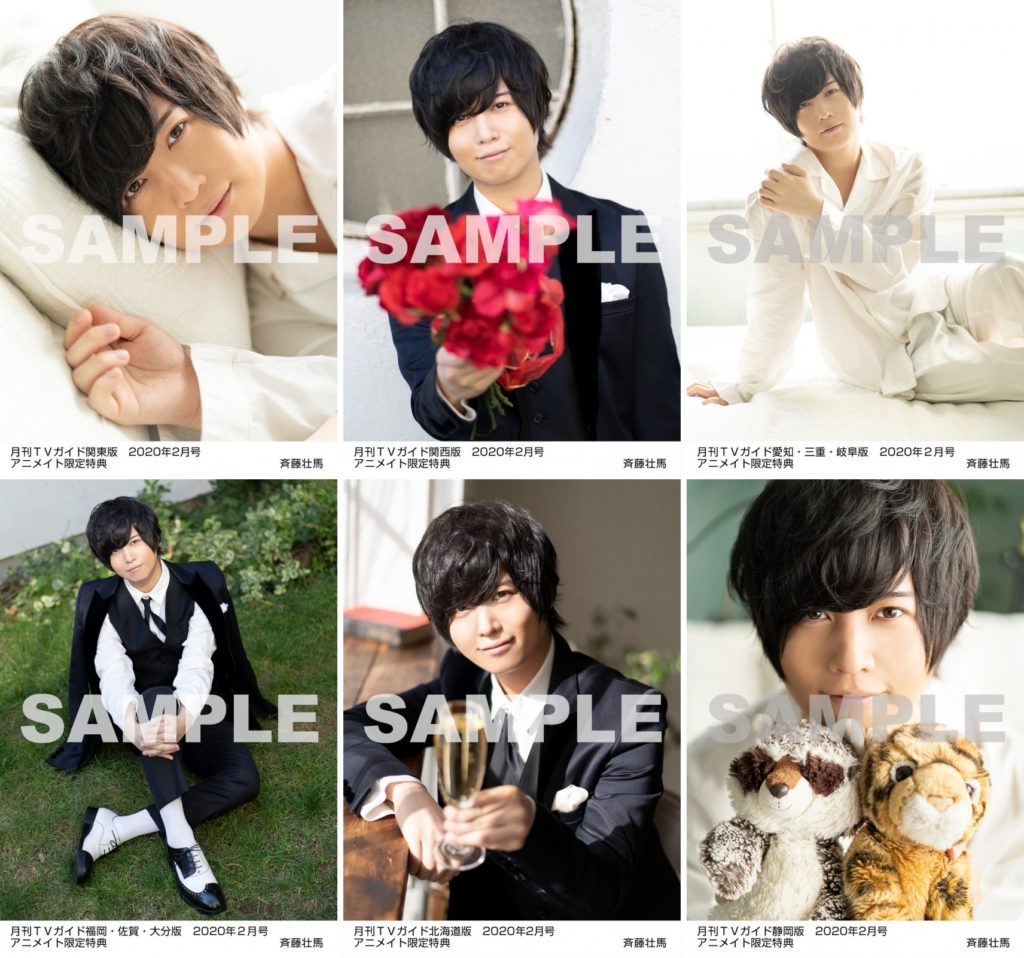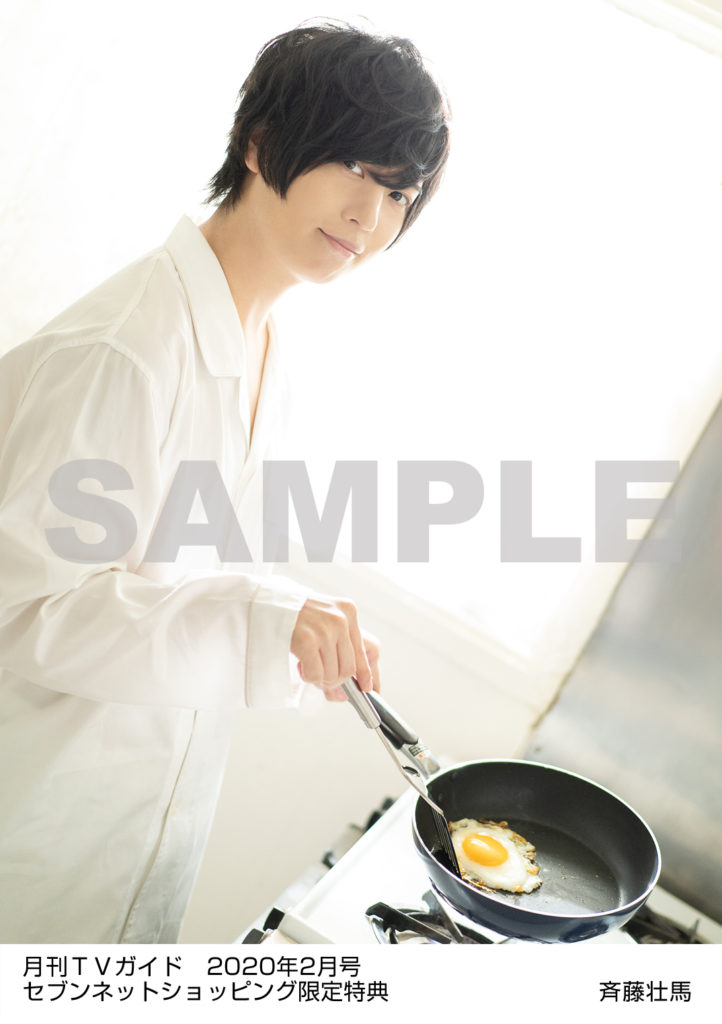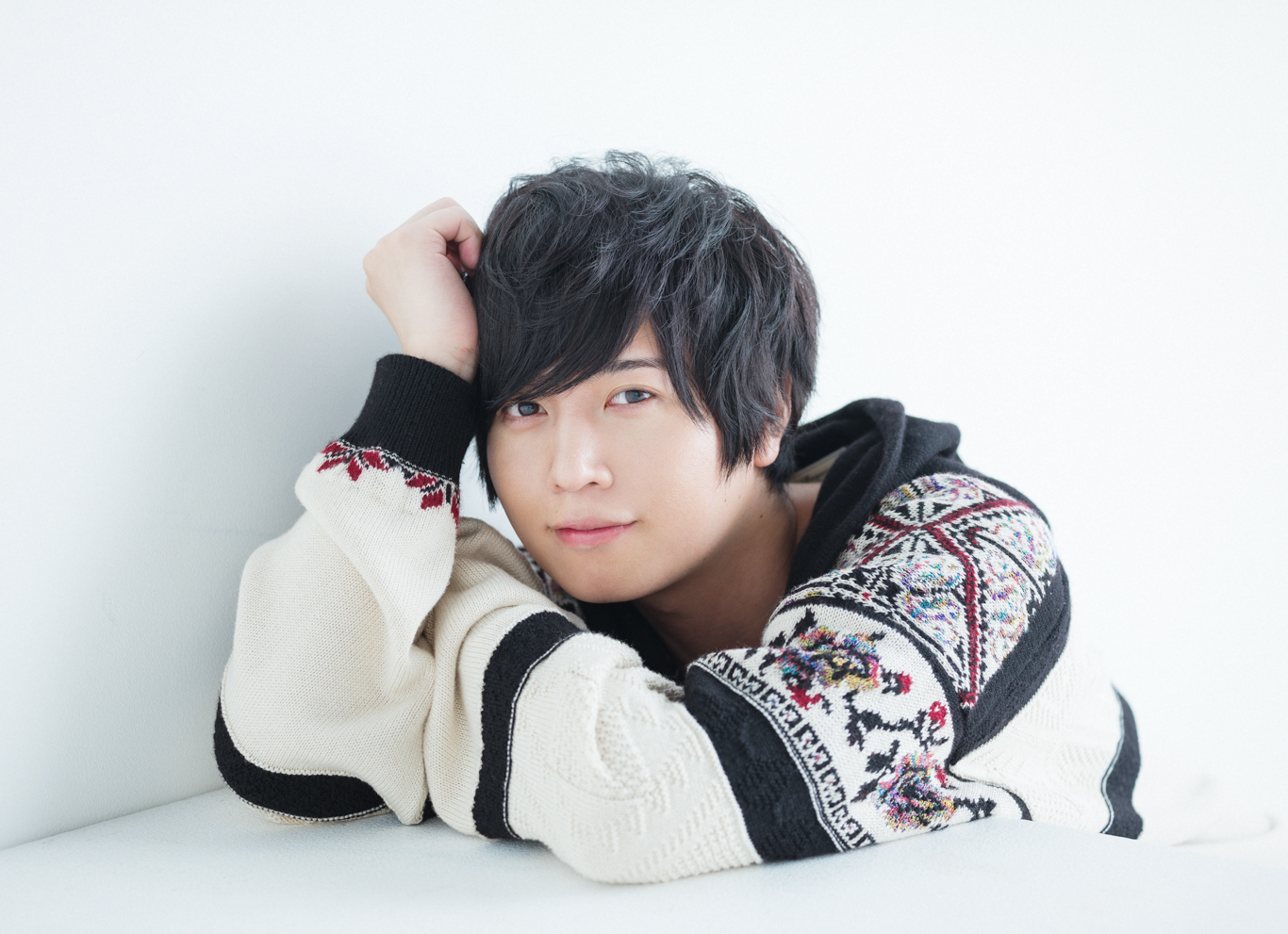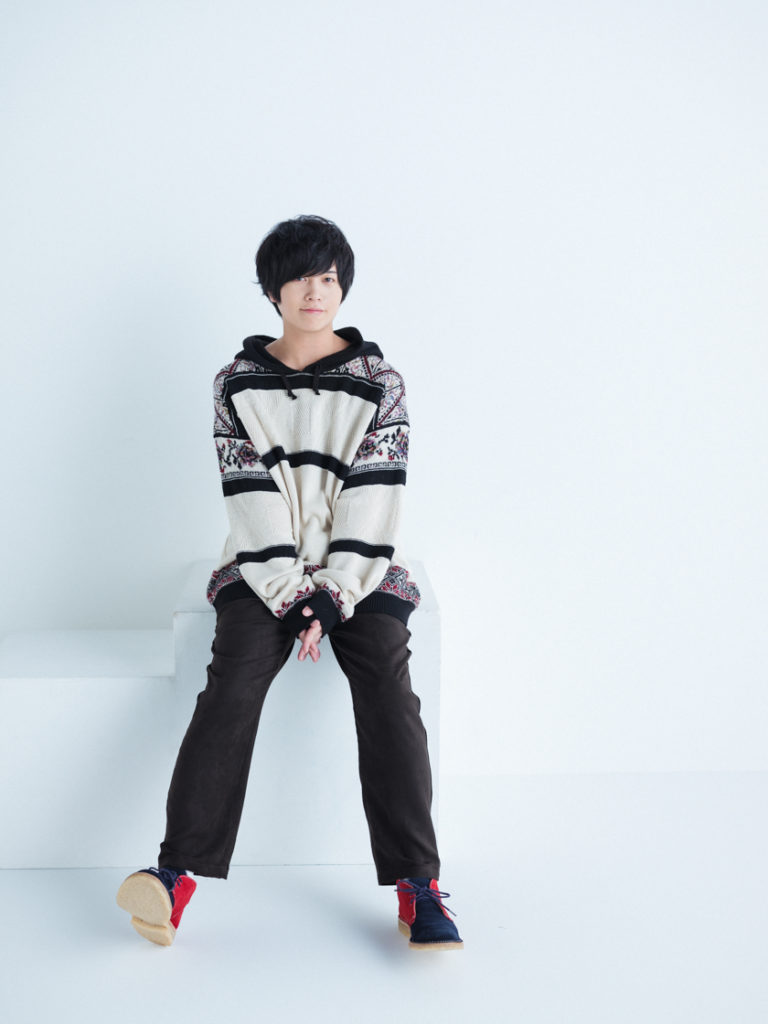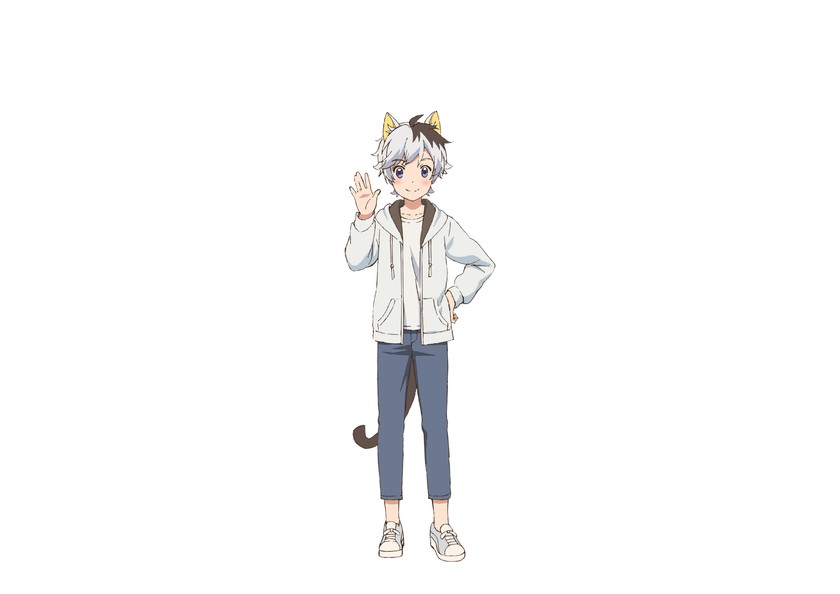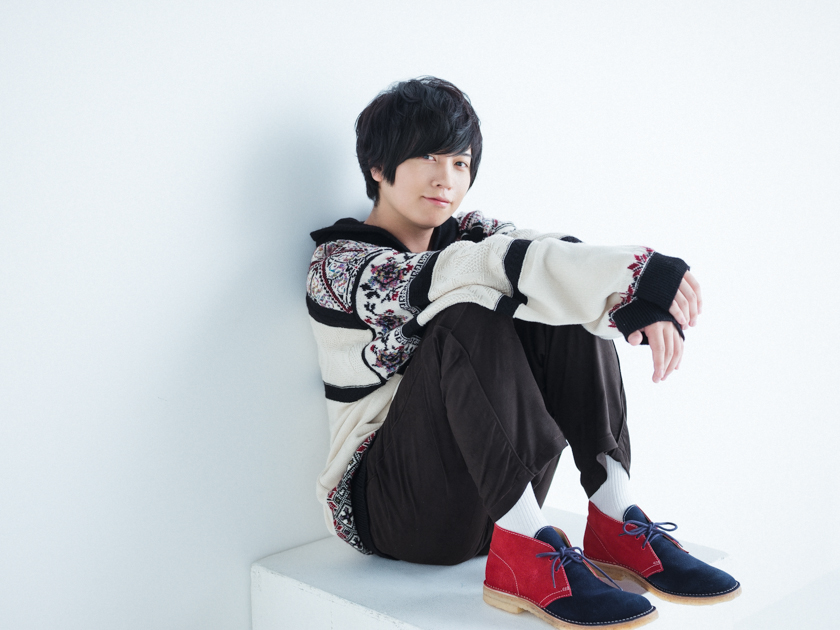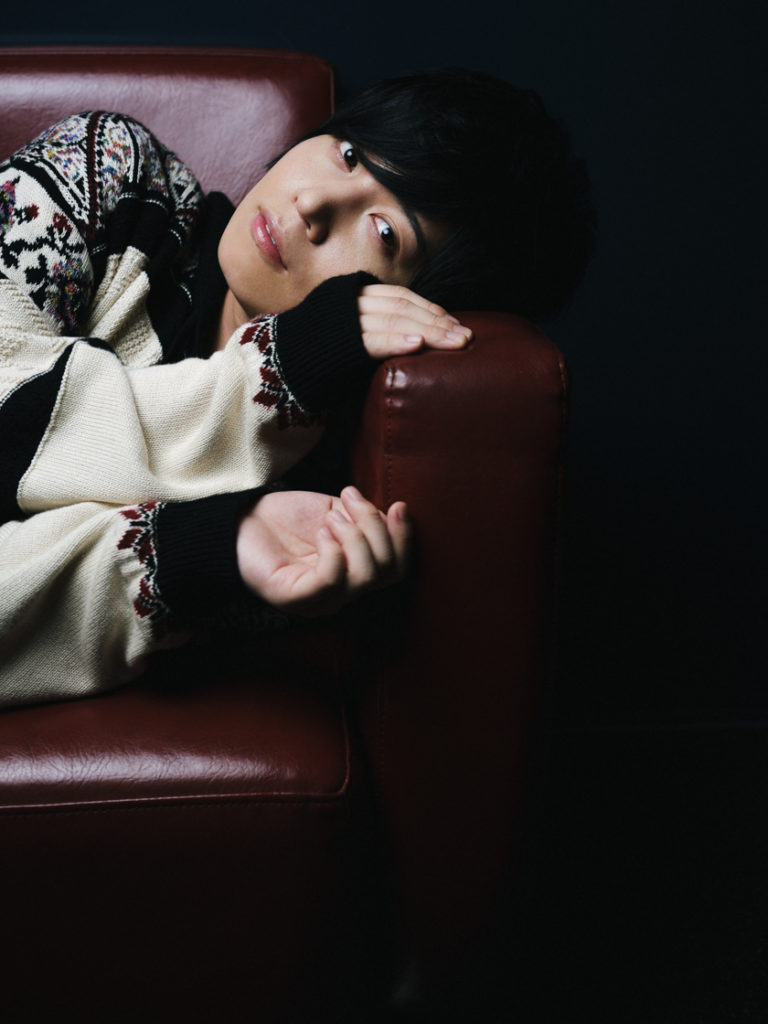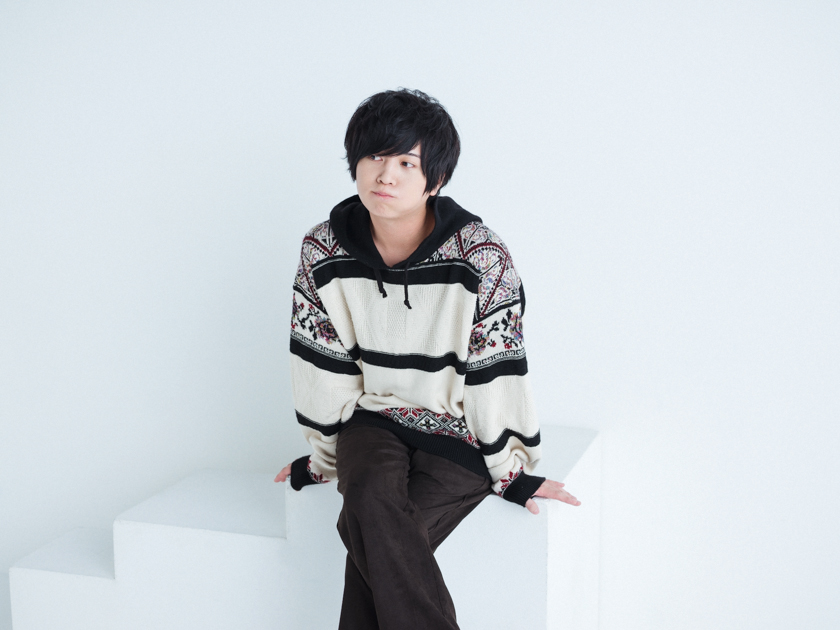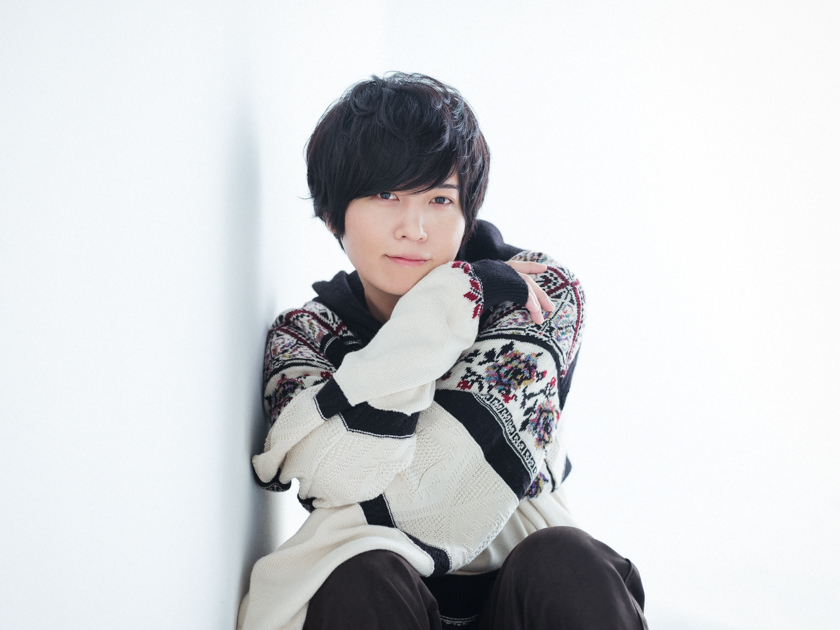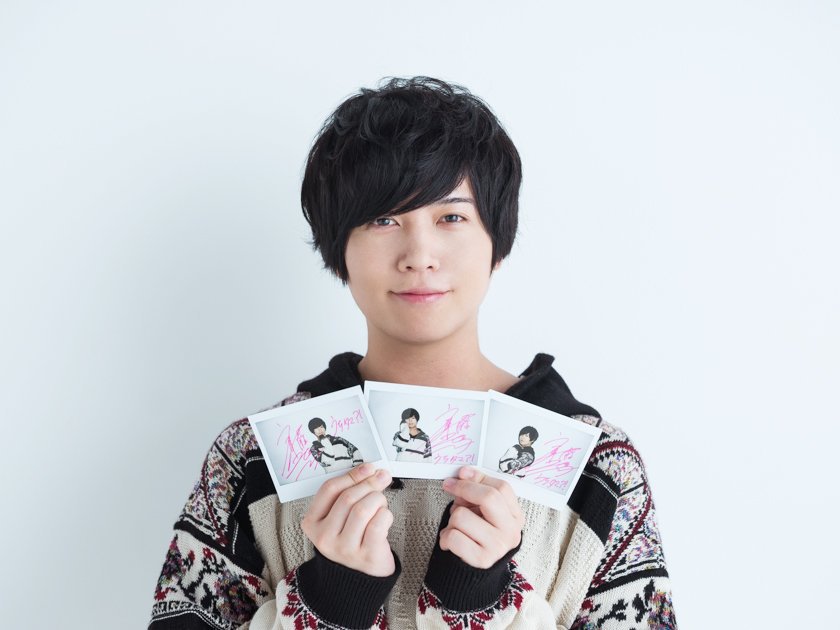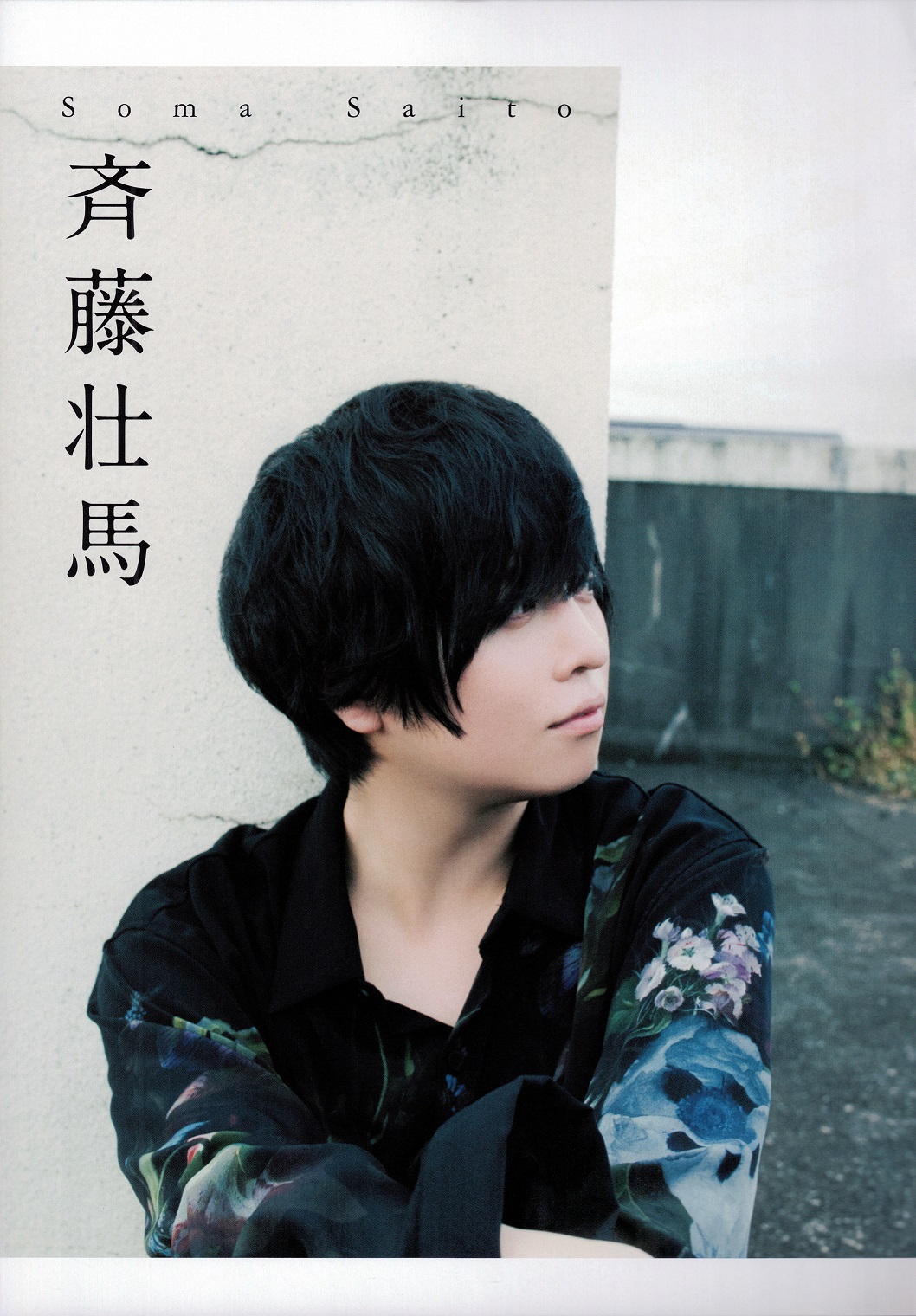


Released: 2020/1/10
Q: It’s been some time since your first solo concert at Maihama Amphitheater in February 2019. How did you approach your music during this time?
My first concert was an incredibly rewarding experience for me. As I said during the concert, having a live band backing me up made me truly feel that Saito Soma’s music is created by a team, not just myself. And if that’s the case, then my next music should be created as a team. As I was making those mental preparations, I also wanted to take some time for “input,” and so I deliberately spent half a year on that, constantly coming up with song motifs and various ideas.
Q: And after half a year, it was time?
I decided it was time, and after thinking about what topics to use in what form, the first song we finished was the leading track “memento.” The CD’s release date was slated for December… because I thought it’d be a good time, being exactly a year since the previous release. *laughs*
Q: The fact that it’s neither a single nor an album, but an “EP” feels really fitting for you, since you’re such a music connoisseur…
Yes, I deliberately wanted to call it an “EP” rather than a mini-album. Also, the concept behind “my blue vacation” is “If the world were to end one day, wouldn’t the time until then be like a vacation?”, but you see, I’m a big fan of a novel called Summer Vacation EP by Furukawa Hideo, and at one point I considered using that exact same title for my EP. But, it was going to be released in winter instead of summer, so I pondered about what a winter aesthetic would be like, and thought maybe blue with a hint of gray? To cut to the point, I made the entire EP the colour of “KITANOBLUE.”
Q: That’s the characteristic colour of Kitano Takeshi’s films, right?
Yes, so the CD jacket and the “memento” MV also used a dark, desaturated colour palette. I hoped to portray my decadent, ending world there.
Q: Why ending?
The “ending” feeling has always been at the base of the things I like, whether it be music I listen to or books I read.
Q: Perhaps you could call it your eternal theme.
With the release of this EP and the solo concert I performed, I thought that the first season of Saito Soma’s music had concluded. In order to move on to the next season, “memento” became a fantasy-style ending, and the concept expanded from there.
That said, I realized that the world seen in “memento” was actually the same as the one in “Kesshou Sekai.” “Kesshou Sekai” has romanticism, so I prioritized beauty when I sang it. But this time for “memento,” it was a bit more pop-style, because it’s a song that goes, “Let’s go on a drive until the end of the world!” Even though it’s the same end of the world as “Kesshou Sekai,” the perspective is different. In that sense, if “quantum stranger” is Season 1, then “memento” takes on the role of Season 1.5.
Also, the rest of the tracks which were written after “memento” are something of a premonition for the new direction my future music will take.
Q: So, “my blue vacation” is also a prologue for Saito Soma’s 2nd season.
Yes, you can interpret it that way.
Q: Now then, first let’s talk about the starting point for this release, “memento.” The word makes me think of the phrase memento mori: “remember that you must die.”
Yes, it was directly inspired from memento mori. In Latin they say “Carpe diem,” which I think would be “seize the day” in English? The “sono hi wo tsumi” in the lyrics is a direct translation of that, and shares the same meaning as memento mori.
Q: It means that since we don’t know what will happen tomorrow, we should treasure this moment.
Right, which is why the lyrics for “memento” are very straightforward. It’s just, “The world might be ending, but until then, let’s go on a drive!” The song has a very upbeat, optimistic energy. I also prioritized the feeling of rock music and speed you get when you listen to it.
Q: The way those straightforward lyrics paint visuals with imaginative words really feels like “Saito Soma style.”
Yes, like the phrase “tou karamitsuita midori no yubi” (green fingers entwined around a tower). This one is exactly what it describes—ruins covered in vines. But if I had to give an opinion, it seems harmonious in a way… it’s not a negative visual.
Also, in my mind, the car that’s driving towards the end of the world in these lyrics is a blue van.
Q: It matches “my blue vacation.”
Right, the word “green” appears in the lyrics, but “blue” doesn’t. *laughs*
The way I imagine it is, even though the world is ending, these delirious people are carpooling in that blue van. It could even be that the end of the world is all in their imagination. They look absurd from an outsider’s perspective, but the people themselves are dead serious about it.
In my mind, this EP is made up of the stories of people in different places during the time span of “my blue vacation until the world ends.”
Q: It’s like a scene from a surrealist film. Did you have any difficulties with the lyrics?
The entire song took a while, but what was particularly hard was the chorus. It took a long time to find words that rhymed and fit well.
By the way, the “suikatou no kodomo-tachi” (watermelon sugar children) in the chorus was inspired by Richard Brautigan’s In Watermelon Sugar, which I also recommended as part of Kawade Shobo’s book fair. I’ve actually eaten real watermelon sugar before. It tasted completely different from what I was expecting, but I’m stubbornly continuing to use my personal impression of the words. *laughs*
Q: I see *laughs*. This song has a strong “band” feeling to it, but what really stood out was the effect on the vocals after “minasoko e shizunda” (sinking to the bottom of the sea). It felt like even the audio was contributing to the distorted world.
That was the divine work of Hayashi (Kenichi)-san, the godlike engineer who I owe a lot to and who has also worked with bands like the Southern All Stars.
With this release, I finally started using music software myself to create my demo tracks. For this part, I’d already put a thick reverb into the demo, and tried to make it sound shoegazing-style. And for the mixdown, Hayashi-san and the director Kuroda (Akihiro)-san both shared ideas and turned it into something really nice.
Q: You started using music software!
Yes. The musical quality of my demos is now leaps and bounds higher than back when I was simply singing to my own accompaniment. I used to explain in words what I wanted the arrangement to be like, but now I can show it directly with sound. It’s a major change, and the arranger, Saku-san is very happy. *laughs*
Q: What tools do you use, by the way?
It’s ultimately just to convey what I have in mind, so I use an iPad and Garage Band. I connect a mobile audio interface called Sonic Port that lets me record my guitar and change the tones and effects. It’s extremely convenient; I recommend it!
Q: You have the face of a musician now, Soma-san *laughs*. You said that after your first concert, you realized the enjoyment of creating music as a team. Did that mixdown story you mentioned also change your way of thinking when it comes to sound production?
Definitely. My communication with Hayashi-san and Saku-san regarding music has become more intimate too. I don’t think the me last year could’ve taken the same close-knit production stance (which has its pros and cons) that I did for this release.
The second song “Paper Tigers” was created through teamwork too. I intentionally wanted to make it a really pop-punk style, power pop song, so I invited Saku-san and Kuroda-san to bring their guitars to my house, where we had a jam session and tried making a pop song with chord progressions I never used before. We mostly completed the short size right there and then. The composition and lyrics credits went to me, but it was really a collaboration between the three of us.
Q: Does “Paper Tigers” refer to paper-mache tigers?
Yes. I think the words are supposed to have a negative nuance, but to me, they have a positive meaning of fearlessness. Even if you’re a tiger made out of paper, it’s fine as long as you have determination. But at the same time, it’s not meant to be a supportive “You’ll be okay.” All it means is that this person is that way. That’s really all it was, and the rest was just stringing together words that felt good in how they sounded. That’s also why I pronounced “etsuraku biyori” in an English-y way.
Q: The “seikai” (correct answer) at the start of “memento” also sounds like it could be “sekai” (world)…
Yes, that’s exactly right. The multiple meanings came in from the very first line *laughs*. I’m a big fan of a band called LOSTAGE, and especially for their older songs, the words they sang sounded different from what was on the lyrics cards. I personally love comparing songs with the lyrics cards, so there are phrases all throughout this EP that’ll make you wonder, “Does this have this other meaning to it as well?”
Q: What kind of people are singing the third song, “Waltz”?
This is a song that the spirits are singing to “her.” She used to be able to fly a long time ago, but now she can’t, and she can’t perceive the spirits either. She’s also forgotten that she used to fly, but the spirits in the atmosphere are telling her “We’re always here with you”… that’s the idea of the song.
The English band Mystery Jets has a song called “Soluble In Air,” and one of my motifs is “melting and mixing in,” which appears here. It was in “Kesshou Sekai” and “C” too.
Music-wise, I made this song in the image of a hymn. Since it’s sung by spirits, the arrangement is toy pop-like. The structure also doesn’t follow the typical Verse A→Verse B→Chorus, and—at the risk of causing misunderstanding—is unbalanced. I wanted to write a song that was irregular yet pop-like, which is a type of music I’ve always liked.
Q: The vocal style was fresh too, with the heavy use of falsetto. The chorus work was also quite elaborate. Now that I know the concept was a hymn, it makes sense.
I’ve always loved overdubbing *laughs*. Up until now I’ve been limiting my melodies to note ranges that can be sung at karaoke, but since this is a peaceful song, falsetto suits it well. In the future, I’d like to write songs that don’t adhere to that limit, and I experimented with that here with this warm-up song. In my opinion, both the lyrics and the music feel extremely complete, and I’m very fond of it.
Q: Next is “Ringo” (Apple), a jazzy song with the aura of a cabaret club in a run-down district.
The original demo I made used an acoustic guitar, and it was a song with a groove… In terms of my previous album, it was similar to “Lemming, Ai, Obelisk.” The image I had in mind was based on the singer-songwriter Fiona Apple.
But when I heard the demo Dewa (Yoshiaki)-san made, it sounded really cool, and I thought “It’d be a waste to use it with this melody as-is.” So, I did something unprecedented for me: rewriting the Verse A and B melodies to match the arrangement.
Q: That’s another way of building teamwork.
Yes, it was a new experience for me. As for the lyrics… I guess it’s a song about an underground illegal gambling den in the world that’s about to end? *laughs* It’s actually a simple story about someone who drowns himself in booze and gambling.
Since it’s a jazzy song with a good beat, I prioritized writing lyrics that have a nice sound to them. My personal favourite is the “ganjigarame no ahinsaa” (tied-up ahimsa) phrase. I wanted to end the line on a syllable ending in “a”, and I just so happened to encounter the word “ahimsa” multiple times, in Tezuka Osamu’s Buddha as well as a manga called Choueki 339-nen (by Ise Tomoka). That coincidence left an impression on me.
At first I wanted to write it from a woman’s point of view, using feminine first-person pronouns, but it all got mixed up while I was writing it. *laughs*
Q: The final view of the end is “Tonight.” It’s city pop, with a drifting feel. The swaying vocals give a mysterious feeling, like you’re drifting between dream and reality.
In the intro where the band comes in, Saku-san added a sitar. This was an amazing discovery. The image I had of “Tonight” was a park by a station along the Chuo Line. But by adding a sitar, the stage shifted to India… or rather, it made me imagine a fictional town that’s fallen into disarray. The idea of an airy stroll through a place like that is where the word “suimukou” (drunken dream voyage) came in.
Q: The word comes from India Suimukou, a book by the poet Tamura Ryuichi.
That’s right, it popped up in my mind by association. So, this is another song where the lyrics came about after hearing the arrangement. The part I like the most is the section starting from “kono mama me ga samenakya ii no ni” (if only I could stay asleep like this). It’s the most pop-like, fantastical part of the song, and extremely emotional. Dozing off inside a balloon and being happy to stay asleep… It’s a bit scary, but it’s like a scene from a movie.
Q: It’s a beautiful scene.
And then, at the very end, the view leaps from the disorderly Indian night to the “other side of the galaxy.” The song feels like skipping along in slow motion, so I’d be happy if you listen to it while taking a walk. If I were to make a MV for it, I’d want the video to show jumps in slow motion.
The other key point of this song is the fade out at the end. I wanted to show that it has no clear ending. One of my interpretations is that after this, the people in this story could either fall asleep, hold their breath as though they were asleep… or perhaps even continue dancing forever. I wanted an ending that would linger on.
Q: …And right when you think it’s over, the CD version has a hidden bonus track, Epilogue. Now that the CD’s been released, please tell us about this song!
The concept is, after the events of “Tonight,” finding a record in debris or a wasteland kind of place. That’s why we added the static noise of a record player. The idea is that you’re listening to a remnant of someone from the past. It’s a very old item, but a story from that time is clearly etched into it… making it a fitting epilogue for a story about the end of the world. The lyrics are also like… our time is coming to an end, but that’s certainly not a bad thing. We’re accepting it peacefully and solemnly.
I wanted this to have a lingering effect too, so please expand on it with your imagination.
Q: I’d love to hear a full-size version of this beautiful Epilogue.
Yes, please wait until the day it fully takes shape.
In 2020, I want to jump straight into the things I want to do with my music. Like creating things without regard for the forms and media I’ve used until now, or writing songs that fully unleash my personal tastes. I want to share, “Right now, this is what I like!” and I’ll be really happy if everyone accepts it. That’s the kind of musical challenge I want to take on this year.



